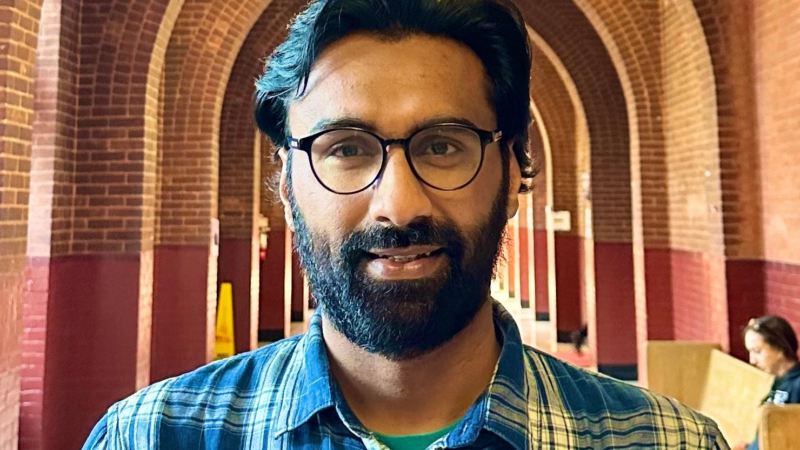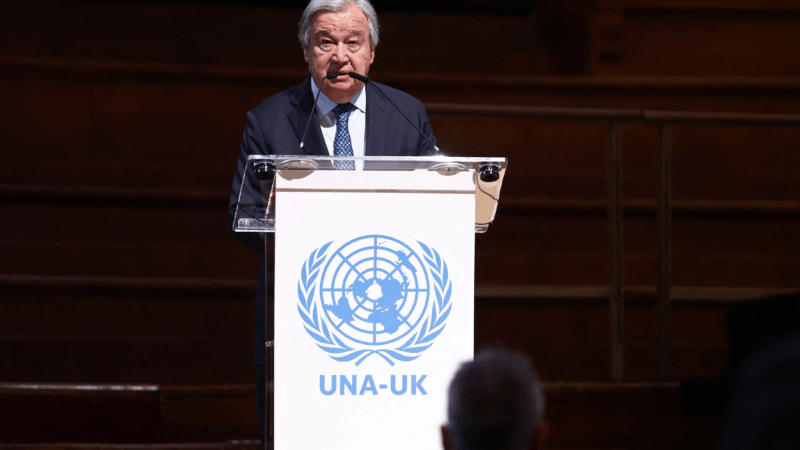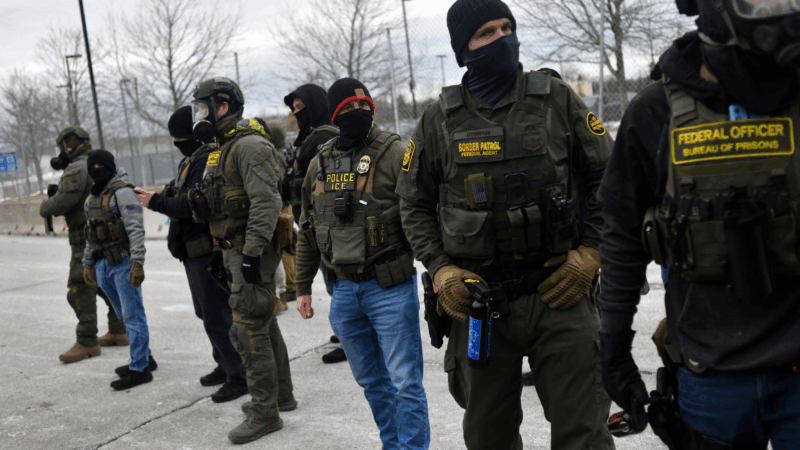Jewish students at Georgetown protest detention of professor Badar Khan Suri
More than 130 Jewish students, staff and alumni from Georgetown University have signed a public letter opposing the arrest and detention of researcher Badar Khan Suri, saying that President Trump’s policies make Jews on campus less safe.
The Jewish students who have signed call Suri’s arrest and detention “an authoritarian move that harms the entire campus community.”
The letter was published on Friday in Georgetown’s newspaper, “The Hoya.”
Suri, a postdoctoral fellow at Georgetown and an Indian national, was arrested by masked federal agents following a Ramadan iftar in March. He is being accused by Department of Homeland Security officials of spreading Hamas propaganda.
Department of Homeland Security’s Assistant Secretary for Public Affairs Tricia McLaughlin said on X: “Suri was a foreign exchange student at Georgetown University actively spreading Hamas propaganda and promoting antisemitism on social media. Suri has close connections to a known or suspected terrorist, who is a senior advisor to Hamas.”
Suri’s father-in-law was formerly an advisor to Hamas, according to the New York Times.
Suri’s lawyers deny that he has spread propaganda, and accuse the Trump administration of retaliating against Suri and his wife for their support for Palestinians and ties to Gaza.
NPR reached out to the administration for comment on the letter’s assertion — that the prominent detentions and deportation threats weaponize antisemitism. DHS’ Tricia McLaughlin responded, “Pretty absurd mental gymnastics to believe that revoking visas of individuals who glorify and support terrorists, harass Jews and do the bidding of organizations that relish the killing of Americans and Jews, is in fact, making Jewish students less safe.”
The letter by the Jewish Georgetown students, professors and alumni reads in part, “President Trump is weaponizing Jewish identity, faith and fears of antisemitism as a smokescreen for his authoritarian agenda, further damaging the campus climate for everyone.”
Disagreement on what constitutes antisemitism
The Georgetown letter was published a day after the Trump administration laid out its case for detaining activist Mahmoud Khalil, who has been accused of providing support to Hamas terrorism. The administration’s rationale largely rests on allegations of antisemitism and “disruptive activities.”
It also comes two days after U.S. Citizenship and Immigration Services announced it will begin screening immigrants’ social media for evidence of antisemitic activity.
In January, Trump issued an executive order that laid out measures to combat antisemitism, particularly on college campuses.
Some Jews at Georgetown are questioning the motivation and consequences of such policies.
“To justify this incursion by the federal government to come in and snatch individuals up from their communities…this does nothing for our safety,” said Jonathan Mendoza, a student in the Master’s in Democracy & Governance program who signed the public letter.
Emma Pinto, a signer and first year law student at Georgetown, said she was particularly disturbed when the administration posted, “Shalom Mahmoud” (in reference to Mahmoud Khalil) on X. To her, this reinforces the antisemitic trope that Jews wield undue levels of power in society.
Signatories of the Georgetown letter include students, faculty, staff and alumni, who say they hold “varying opinions and perspectives on Israel-Palestine.”
Pinto said that despite these differences, the signers felt aligned on the question of Suri’s detention. They agree, Pinto said, that the arrest of Suri, Khalil and Rumeysa Ozturk, along with the revocation of student and work visas of many others — violates civil liberties, and creates a climate of fear.
“You might find all protest for Palestine antisemitic,” said Pinto. But, “You also agree that detaining people and sowing fear in a community is not the way.”
High-speed trains collide after one derails in southern Spain, killing at least 21
The crash happened in Spain's Andalusia province. Officials fear the death toll may rise.
United Nations leaders bemoan global turmoil as the General Assembly turns 80
On Saturday, the UNGA celebrated its 80th birthday in London. Speakers including U.N. Secretary-General António Guterres addressed global uncertainty during the second term of President Trump.
Parts of Florida receive rare snowfall as freezing temperatures linger
Snow has fallen in Florida for the second year in a row.
European leaders warn Trump’s Greenland tariffs threaten ‘dangerous downward spiral’
In a joint statement, leaders of eight countries said they stand in "full solidarity" with Denmark and Greenland. Denmark's Prime Minister Mette Frederiksen added: "Europe will not be blackmailed."
Syrian government announces a ceasefire with the Kurdish-led Syrian Democratic Forces
Syria's new leaders, since toppling Bashar Assad in December 2024, have struggled to assert their full authority over the war-torn country.
U.S. military troops on standby for possible deployment to Minnesota
The move comes after President Trump again threatened to invoke the Insurrection Act to control ongoing protests over the immigration enforcement surge in Minneapolis.







